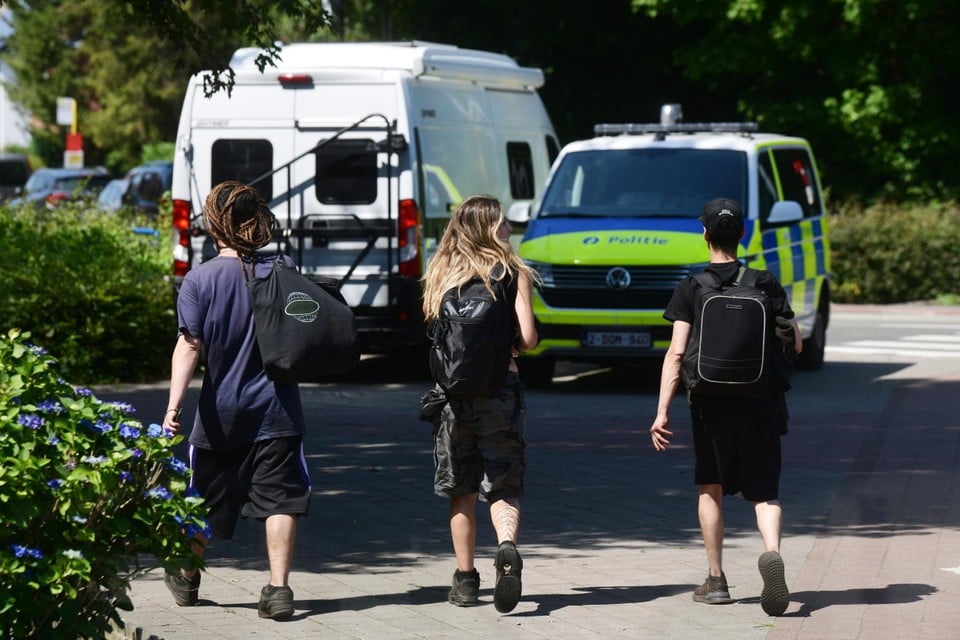Airbnb rental control threatens to become impossible, estimated by authorities

Residence|The draft law governing short rent received contradictory feedback from the commentators. Over a hundred hopes for tighter laws, even more looser.
The abstract is made by artificial intelligence and checked by man.
Short rental control threatens to become impossible, warning many authorities and organizations in their statements.
The proposal for a change in the Building Act would regulate short rental and some other factors, but received conflicting feedback from over 300 consultants.
Problems include authentication of the renter’s actual housing and monitoring the rental days.
Deputy Ombudsman Maija Saksl and the Ministry of Justice are critical of criminalization of short rent.
Short rental Supervision threatens to become impossible in practice, estimated, among other things, the Ministry of Justice, the Deputy Ombudsman for the Parliament, the Association of Local Authorities, the City of Helsinki and the Building Inspection Association.
Critical estimates are included in the proposal for amendments to the Construction Act to the statements. In the law change, the Building Act would add clauses to regulate the rapidly widespread short rental, ie renting furnished housing for travelers and other needs for days or weeks.
The same package also included some other proposals for amendments to the Building Act. By the time of April 25, more than 300 statements came from the deadline, most of which concerned short rent.
The proposal for amendment to short rent was completely satisfied with the few consultants. More than a hundred considered the draft law too permissible, even more too harsh. There were dozens of consultants.
In Finland Airbnb is a major service provider for short rental housing.
Draft law According to the building, the building should be used for the purpose for which the building permit has been granted: in other words, a residential building for living.
Housing would be considered to be permanent housing. This would cover all more than 28 days, or at least four weeks of residence.
However, under certain conditions, shorter housing periods would also be considered to be a living: an apartment that is enrolled and actually living, could be rented unlimited in any short or long run and still everything would be living.
A second or investment apartment could be rented for less than four weeks during the calendar year for 90 days, and this would still be interpreted as a living. In its construction order, the municipality could extend the time limit to 180 days.
The short renter should keep a record of the rental days and, upon request, present it to the building supervision. Building control could be addressed in short rental penalties exceeding the time limit.
As a new law, the law would be criminal consequences: for the use of the purpose of the building, for example, for illegally long -term rent, could be convicted of a building offense.
The punishment would be fines.
Why Control would be difficult or impossible?
Gigantic problems with building control could already be about demonstrating whether a short rented apartment is the renter’s own home or not.
The actual draft article requires enabling to be enrolled, and in the justification of the draft law, actual housing.
This would be evaluated, among other things, by « permanent stay in the dwelling » and « location of social networks at a sufficient distance from the dwelling ».
Parliamentary Deputy Ombudsman Maija Sakslin In practice, it is impossible in its own statement: « It remains unclear, for example, what information about his or her housing and social relationships, the renter of a home would be obliged to disclose, where else would the supervisory authority be entitled and how this information could be used for the purposes of the penal rule, » he writes.
Second A large and possibly insurmountable problem would be to determine how many days of the calendar year the apartment has been in short rental. The Ministry of Justice’s statement written Kalle Mäenpää Paint the Orwellian view of the success of observation:
« Effective control of restrictions would require continuous monitoring of people in a building or apartment at different times, » he writes.
Monitoring should not only be continuous but also accurate: do the apartment ramp up instead of short -term tenants, long -term tenants or their guests, or perhaps the homeowner relatives or other relatives who use the apartment for free.
Third The problem would be schedules: as the City of Helsinki’s building control in its statement recalls, « The administrative compulsory process is time consuming » and the calendar year is practically too short to discipline excessive short rent with threatening fines.
Excessive short rental and, respectively, building control prohibitions and penalty payment would always be reset at the end of the calendar year. After that, it would be possible for the short rent to start again, at least until the limit of 90 days or up to 180 days would be filled. If the renter were hard -headed, he would hardly disregard the cross -border, when the penalty payments would not be able to pay.
The self -monitoring of the renters’ self -monitoring, that is, the login of the logist, is skeptical about the short rental days. Could the building supervision be presented with real accounting that reinforces overruns?
« It may be problematic from the perspective of self -criminalization, » Mäenpää of the Ministry of Justice points out.
If Short rental would be impossible after the legislative change with the threat of building control, would the ordinary fines effective?
The draft law proposes that if the building is used in contravention of the use of the building permit, the culprit must be fined for a building offense. In practice, the situation could arise when a short renter can be shown to have broken 90 or up to 180 days. In this case, it would no longer be about living according to the building permit, but about accommodation against the permit.
Deputy lawyers Saksl and the Ministry of Justice Mäenpää are overwhelmed by criminalization. The offense, or the use of the building in violation of the building permit, is so insignificant that there is no reason to go to the crime and fine line.
« Criminalization would include quite minor acts, » Mäenpää says.
Sakslin, on the other hand, recalls, among other things, the discretion of the municipalities in building order to extend the annual short rent for 90 days to a minimum of up to 180 days. This, in turn, would lead to a situation where « more than 90 days of renting would be punishable in one municipality and in the other ».
« I do not – consider the criminalization of short rental criminalization to municipal construction orders as problematic for the constitution, » Sakslin writes.







